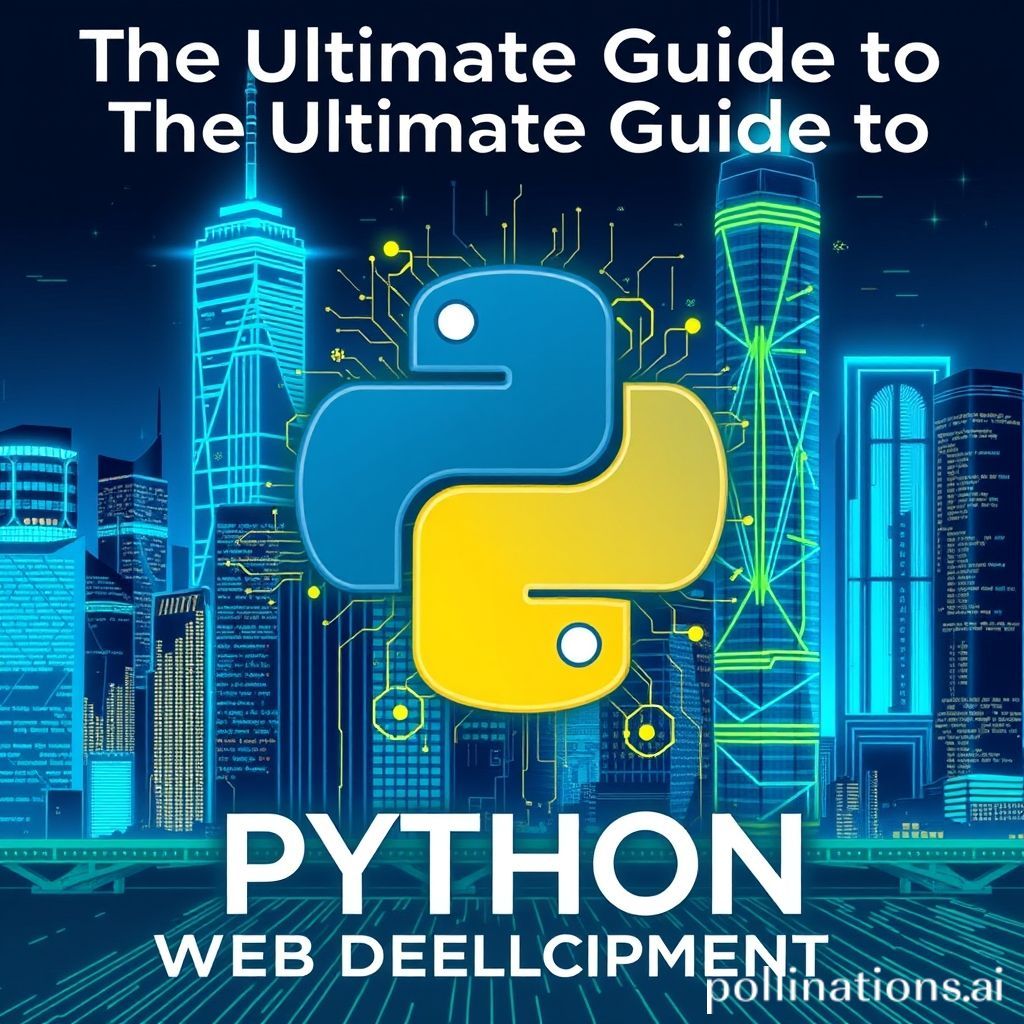
The Ultimate Guide to Python Web Development
Python has emerged as one of the most popular programming languages, not just for data science and machine learning, but also for web development. With its simplicity and versatility, Python offers robust frameworks and tools that make web development efficient and enjoyable. This guide will introduce you to the essentials of Python web development.
1. Why Choose Python for Web Development?
Python is favored by many developers for various reasons:
- Simplicity: Python’s clean syntax makes it easy to read and write, which helps developers focus on solving problems rather than getting bogged down in complex syntax.
- Frameworks: Python offers various web frameworks that simplify the development process, such as Django and Flask.
- Strong Community Support: Python has a large community of developers who contribute to its growth and provide valuable resources and libraries.
- Scalability: Python applications can easily scale as your project grows, making it suitable for both small and large applications.
2. Popular Python Web Frameworks
Several web frameworks available in Python can help developers streamline their projects. Two of the most popular ones are:
Django
Django is a high-level web framework that encourages rapid development and clean, pragmatic design. Features include:
- Built-in Admin Panel: Automatically generate a web-based interface for managing your application’s data.
- ORM (Object-Relational Mapping): Simplify database interactions using Python classes.
- Security Features: Protect against common security threats like SQL injection, cross-site scripting, and cross-site request forgery.
Flask
Flask is a micro-framework that is lightweight and flexible. It is perfect for small applications and offers various extensions:
- Simplicity: Easy to start with and well-suited for those who want to understand web development without learning a large framework.
- Modularity: You can easily add or remove components as needed.
- Large Ecosystem: Many libraries and extensions are available to enhance functionality.
3. Essential Tools for Python Web Development
In addition to frameworks, several tools and libraries enhance the web development experience:
- HTML/CSS/JavaScript: Understanding front-end languages is crucial to create user-friendly interfaces.
- Database Management: Use SQLite, PostgreSQL, or MySQL for data storage and management.
- Version Control: Use Git to track changes and collaborate with others on code.
- Virtual Environments: Tools like virtualenv help create isolated environments for projects, managing dependencies effectively.
4. Conclusion
Python web development opens up a world of possibilities for developers. With its robust frameworks, supportive community, and a plethora of tools, you can create scalable and maintainable web applications efficiently. Whether you choose Django for its comprehensive features or Flask for its simplicity, mastering Python web development can significantly enhance your skills and career prospects.
